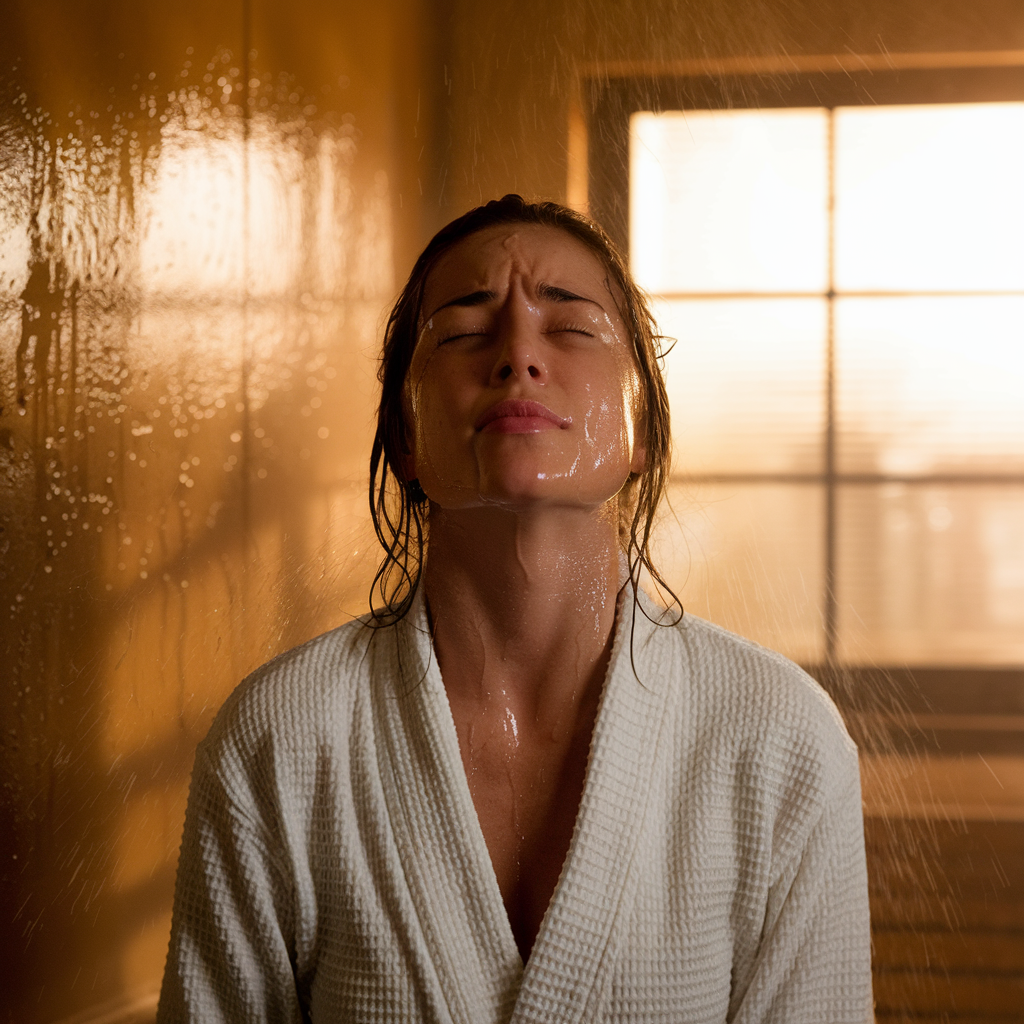
Why sweat is good for your skin
Share
Sweating – we all do it, whether we’re hitting the gym, enjoying a relaxing sauna, or just out and about on a warm day.
While sweat often gets a bad rap for being salty and, well, a bit gross, it actually has some surprising benefits for your skin when handled correctly.
Let’s dive into why sweating can be your skin’s best friend and how to avoid turning it into your worst enemy.
The Good: Why Sweat Can Be Great for Your Skin
1. Natural Detoxification
Sweat helps flush out toxins and impurities from your pores. Think of it as your body’s built-in cleansing system. When you sweat, your pores open up, and this can help release buildup like dirt, oil, and other impurities that might be clogging them.
2. Endorphins and Stress Relief
Sweating is often a byproduct of physical activity or heat exposure, both of which can trigger the release of endorphins – the feel-good hormones. Lower stress levels mean lower cortisol production, a stress hormone that can wreak havoc on your skin by causing breakouts, inflammation, and even premature ageing. Less stress equals healthier, happier skin.
3. Improved Circulation
When you sweat, your heart rate often increases, boosting blood circulation. This improved circulation delivers oxygen and nutrients to your skin cells, giving you that post-workout glow and aiding in skin repair and regeneration.
4. Hydration for the Skin Barrier
Sweat contains natural moisturisers like urea and lactic acid, which can help keep your skin’s barrier hydrated and balanced (at least temporarily). It’s like a short-term spa treatment from within!
The Not-So-Good: Why You Need to Clean Up Post-Sweat
While sweat itself isn’t inherently bad, leaving it on your skin for too long can lead to problems. Here’s why:
1. Bacteria Build-Up
Sweat creates a moist environment, which is a perfect breeding ground for bacteria. This can lead to breakouts, rashes, or even infections if not cleaned off promptly.
2. Clogged Pores
If sweat mixes with dirt, oil, or makeup, it can clog your pores. This can result in acne, blackheads, or other skin irritations.
3. Irritation and Dryness
Sweat contains salt, which can irritate and dry out your skin if it’s not rinsed off. This is especially true for people with sensitive skin or conditions like eczema.
How to Maximise the Benefits of Sweat for Your Skin
1. Cleanse Immediately
After sweating, cleanse your skin with a gentle, natural cleanser to remove salt, bacteria, and other impurities. Look for products with soothing ingredients like aloe vera or chamomile to avoid irritation.
2. Hydrate Your Skin
Follow up your cleanse with a lightweight moisturiser to restore hydration. This is especially important after a sweaty workout or sauna session.
3. Skip the Makeup During Workouts
Wearing makeup while sweating can trap dirt and oils in your pores. Let your skin breathe freely to maximise the detoxifying benefits of sweat.
4. Wear Breathable Fabrics
If you’re prone to breakouts on your body, opt for moisture-wicking workout clothes to minimise irritation and bacteria buildup.
5. Embrace Saunas, But in Moderation
Saunas are excellent for inducing sweat and promoting detoxification, but overdoing it can dehydrate your skin. Always rehydrate your skin and body afterward.
The Bottom Line
Sweat can be a game-changer for your skin’s health, offering detoxification, stress relief, and even a natural glow. But the key to reaping these benefits is post-sweat care. By cleansing and hydrating your skin after every sweat session, you can enjoy all the positives without worrying about clogged pores or irritation.
So next time you’re working up a sweat, remember: it’s not just good for your body – it’s a skincare powerhouse too. Just don’t forget to clean up afterward!
Looking for natural skincare products to cleanse and hydrate after your workouts? Check out our range at Rêver Beau – crafted to keep your skin radiant and healthy, no matter how much you sweat.
